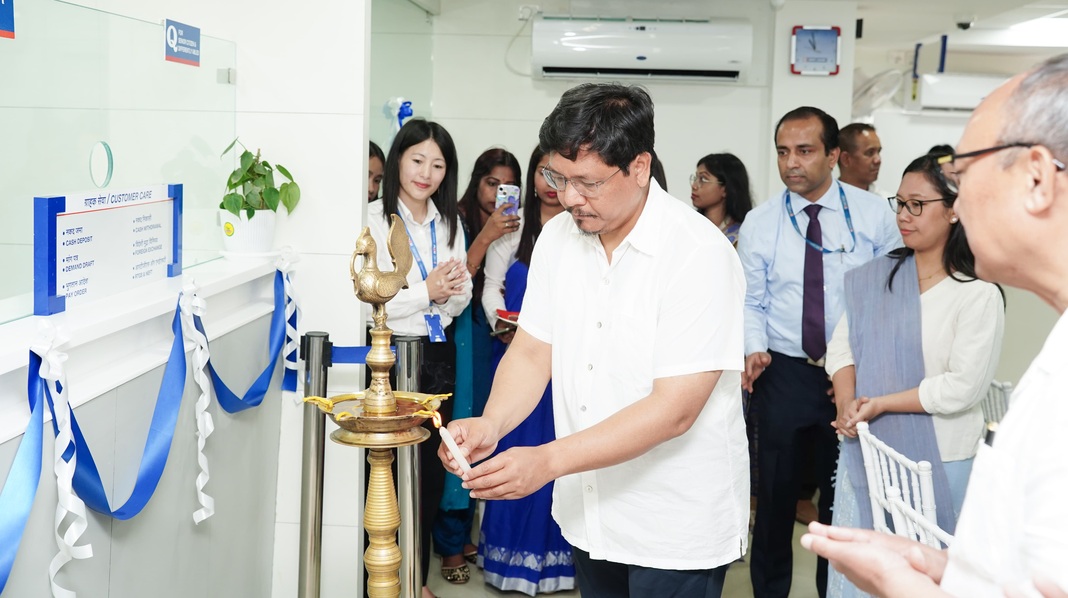By Dipak Kurmi
Journalism has long been heralded as the fourth pillar of democracy, a fundamental institution that upholds transparency, accountability, and the dissemination of truth. At its core, journalism is not just about reporting news; it is an active and investigative force that questions, scrutinizes, and ultimately enlightens society. A journalist’s right to ask questions is not merely a professional privilege but an essential responsibility that ensures the public remains informed, the powerful are held accountable, and democratic values are preserved.
In a democracy, the ability of journalists to question those in power is indispensable. The right to freedom of speech, as enshrined in the Constitution of India, grants journalists the authority to probe the activities of governments, administrations, corporate entities, and influential figures. This right serves as the cornerstone of democratic governance, ensuring that power remains in check and that the public is not misled by misinformation or propaganda. A journalist’s pen and microphone are the echoes of the public conscience, constantly reminding those in authority of their duty to justice and truth. However, this right is often met with resistance, as those in power may attempt to suppress dissent and control the flow of information. Despite these challenges, most journalists continue to uphold the values of journalism with unwavering integrity and honesty.
The Role of Journalists in a Democratic Society
Journalism is fundamentally about inquiry—questioning, investigating, and seeking the truth. Society relies on journalists to uncover the root causes of events and present objective facts to the public. If journalists were unable to ask questions freely, information flow would be stifled, corruption would remain concealed, and social injustices would persist without scrutiny. The ability to question is not just a right but a duty that ensures governance remains transparent and citizens stay informed about critical policies and decisions that impact their lives.
For instance, if the public remains uninformed about a government policy due to a lack of investigative journalism, they may struggle to grasp its implications, leading to confusion and misguided decisions. Only when journalists question and expose the truth can people become aware of their rights and demand justice in society. In this way, the right of journalists to ask questions is a fundamental pillar that supports the health of a democracy. Without it, societies risk descending into ignorance, misinformation, and unchecked authority.
Constitutional and Legal Protections for Journalists
The right of journalists to ask questions is legally recognized in democratic nations. The Constitution of India, for example, considers press freedom an integral part of the right to freedom of speech. This allows journalists to voice their inquiries, collect information, and publish factual reports without undue restraint. Additionally, the Right to Information (RTI) Act provides journalists with access to governmental records, enabling them to conduct investigative journalism and ensure that authorities remain accountable to the public.
The impact of journalists’ inquiries cannot be understated. Numerous cases exist where a single question from a journalist has shaken political establishments, exposed corruption, and given voice to marginalized communities. From uncovering political scandals to exposing police misconduct, the press plays a crucial role in bringing hidden truths to light. If journalists fail to ask pertinent questions, many significant issues will remain shrouded in secrecy, allowing corruption and injustice to thrive.
Challenges Faced by Journalists
Despite the legal and constitutional safeguards, journalists often encounter obstacles when performing their duties. Many government bodies have been accused of hindering press freedom by restricting journalists’ access to information, intimidating them, or even resorting to arrests and legal harassment. In certain regimes, the media is heavily controlled to prevent criticism against the government or influential figures. Such restrictions weaken democracy and prevent the public from accessing unbiased information.
A free and independent press is vital for a just society. Without it, ignorance prevails, crime and corruption flourish, and social injustices go unchallenged. Unfortunately, many journalists face threats and harassment for simply performing their duty. In an era of increasing hostility towards the press, it is imperative to defend journalists’ rights and ensure they can operate without fear of retribution.
The Moral and Ethical Responsibilities of Journalists
While journalists have the right to ask questions, they must also exercise this right with responsibility. Their inquiries should be based on factual evidence, ethical considerations, and a commitment to truth. Sensationalism, misinformation, and propaganda can cause severe harm to individuals and society at large. Journalists must ensure that their reporting does not incite violence, disrupt social harmony, or invade personal privacy unjustly.
A journalist who uncovers a major financial scandal should report it with clarity and substantiated evidence, allowing the public to understand the issue fully. However, if the same journalist exaggerates the details, spreads unfounded rumors, or deliberately misleads the audience, this constitutes an abuse of journalistic power. The line between responsible journalism and sensationalism is thin, and journalists must navigate it carefully to maintain credibility and public trust.
Another crucial consideration is national security. While investigative journalism is essential for democracy, certain classified information must be handled responsibly. Reckless disclosure of sensitive data could compromise a nation’s security and destabilize governance. Therefore, journalists must balance their right to question with a strong sense of ethical responsibility.
The Power of Journalism in Shaping Society
History is replete with examples of journalists whose inquiries have led to significant societal changes. From exposing government corruption to bringing attention to human rights abuses, journalism has played a pivotal role in shaping the course of history. The power of a journalist’s questions is limitless. It has led to the downfall of corrupt politicians, exposed corporate fraud, and highlighted the struggles of marginalized communities. Without investigative journalism, many of these issues would have remained hidden from public scrutiny.
For example, if there is corruption within a government agency and no journalist investigates it, that corruption will persist for years, causing extensive damage to society. However, if journalists conduct thorough investigations, gather evidence, and present their findings to the public, these injustices can be challenged and rectified. In this sense, the right to ask questions is not just a professional prerogative but a civic duty that contributes to social justice and good governance.
The Balance Between Inquiry and Responsibility
Journalists must be mindful of their influence and responsibilities. Their role is not to manipulate or create unnecessary hysteria but to illuminate the truth. A journalist’s questions should be guided by reason, accuracy, and a commitment to the greater good.
There are instances where journalists may unintentionally overstep their boundaries. While questioning is essential, the intention behind the questions matters. If a journalist’s aim is purely to sensationalize an issue for personal or corporate gain, this undermines the integrity of the profession. Responsible journalism demands a balance between fearless inquiry and ethical reporting.
The Future of Press Freedom
The freedom of journalists to ask questions must be preserved and strengthened. As the world grapples with challenges such as misinformation, political repression, and digital surveillance, the role of independent journalism becomes even more critical. Governments, media organizations, and civil society must work together to ensure that journalists can operate freely without fear of censorship or persecution.
Ultimately, journalism is about seeking the truth and ensuring the public’s right to know. It is not merely a profession but a mission to uphold democracy, justice, and transparency. By protecting the rights of journalists and fostering a culture of accountability, societies can safeguard their democratic foundations and work towards a more informed and just future.
The right of journalists to ask questions is the backbone of democracy. It is a right granted by law, supported by society, and essential for truth and justice. However, it must be exercised with responsibility, integrity, and ethical consideration. A society that values and protects press freedom is a society that thrives on truth, transparency, and progress. By fostering an environment where journalists can operate without hindrance, we take a crucial step toward building a more enlightened and equitable world.
(the writer can be reached at dipakkurmiglpltd@gmail.com)




